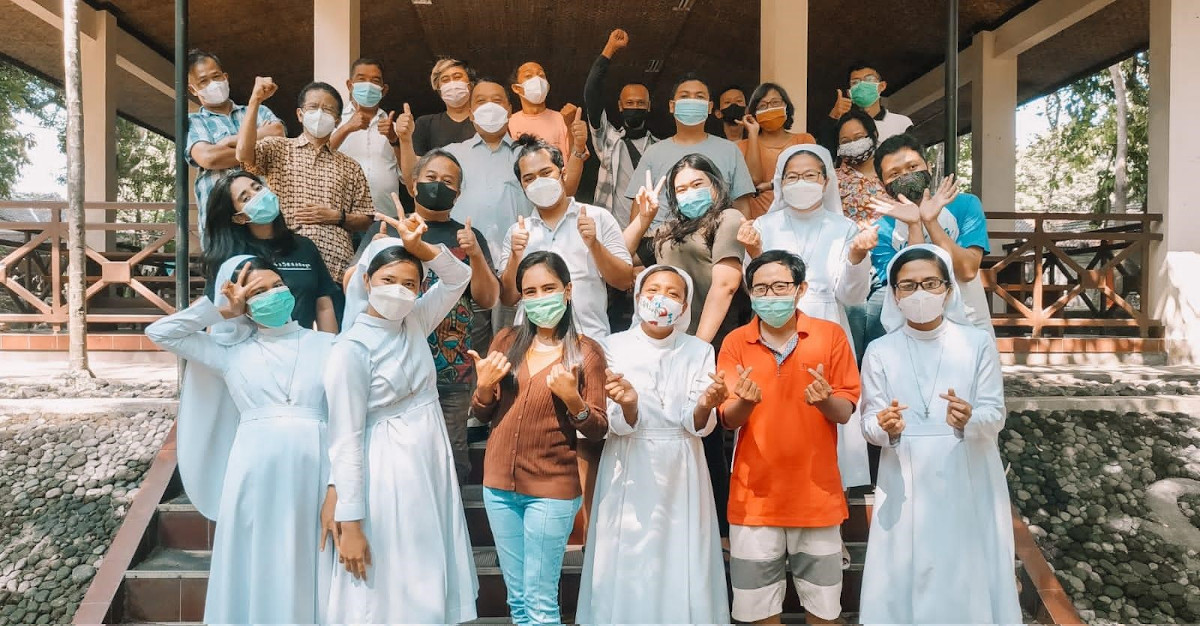
When the Covid-19 pandemic reached Indonesia in March 2020, all villages in Sinduharjo were locked down, including Jaban village where the Jeusit-run Kampoeng Media complex is located. Various in-person activities that had been planned during the year had to be cancelled. The renovated buildings, inaugurated only in December 2019, were left empty. The employees were asked to work in shifts because there was barely any work to do.
Fr Murti and I were restless. We asked ourselves what we could do to help people in our neighbourhood. We thought of using the empty rooms as shelter for paramedics and medical doctors, but local authorities wanted to avoid bringing in outsiders into the village, which at the time did not yet have a Covid case. So during the first outbreak, we could only go as far as providing basic needs for those who were affected by the virus and some money for the prevention effort of the village.
In the beginning of May 2021, Kampoeng Media was ready to accept participants in workshops and training programmes, but just a month later, the second outbreak started, which was worse than the first. Many hospitals ran out of rooms and could not provide patients with good treatment. The planned trainings and workshops once more had to be rescheduled. We were restless again. It was good that Studio Audio Visual could still produce programmes on YouTube, but we wondered what else could we do. Then at the end of June, Our Provincial, Fr Benny Juliawan SJ, asked Fr Murti whether Kampoeng Media could be used as an isolation facility for Covid-19 patients. When we said “yes” to our Father Provincial, we only had the rooms; we had no volunteers, medical staff, money, equipment, and experience.
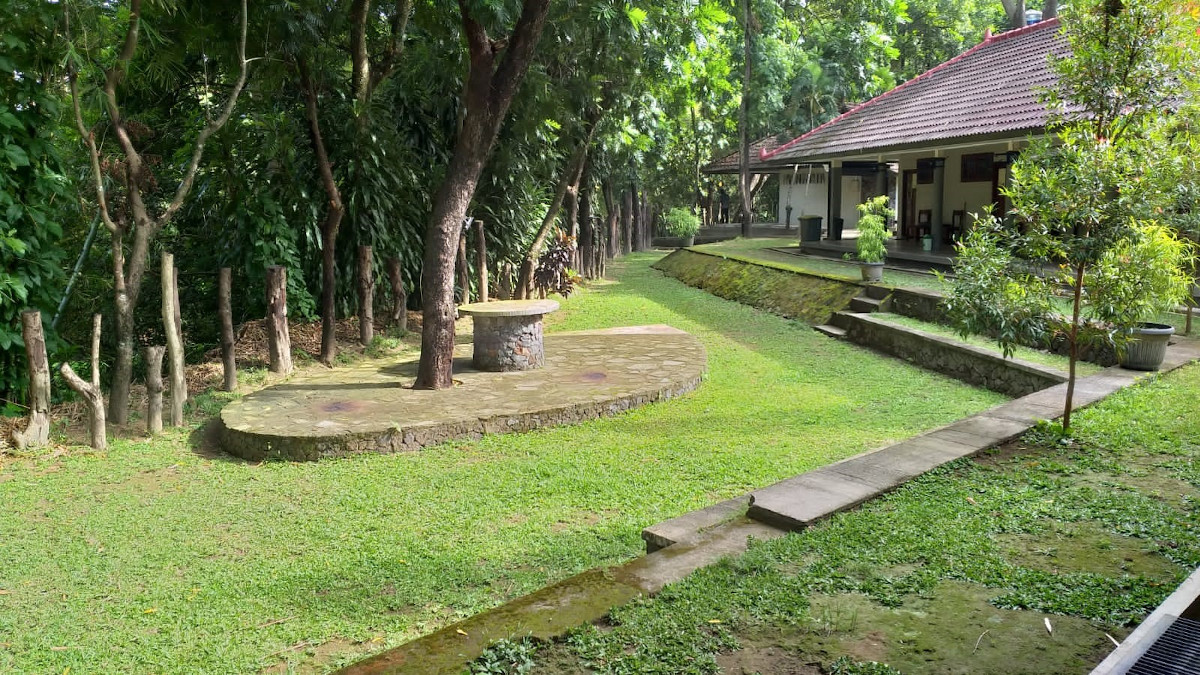
If last year, the local authorities disapproved of our plan to make Kampoeng Media a shelter for Covd patients, this time, the virus had spread far and wide, including in Jaban, so they did not need further convincing to agree to our plan. While we were busy with the paper work, Fr Murti got in touch with SONJO (Solidarity for Yogya), a self-initiated organisation by the medical staff of Gadjah Mada University who had started isolation shelters in several communities in Yogyakarta. Fr Murti also contacted Panti Rapih Hospital for assistance in isolation management and the possible involvement of their medical doctors and nurses as health consultants for the shelter’s patients.
Everybody supported the plan, but especially the village head who earlier had failed to get the permission of school authorities in Sinduharjo to lend their school buildings as isolation shelters. The Public Health Center of Ngaglik District also promised to supply us with vitamins. Initially we wanted to accommodate two persons in each room with 21 rooms in total. However, after a discussion with the medical team we decided to have only one person in each room to make the isolation process more effective.
We announced the opening of the shelter on social media, and were surprised by the response we received. We opened on 12 July without a formal ceremony, but many volunteers still came to help including university students, religious sisters, Jesuit scholastics from St Ignatius College, parish communities, and staff members of Studio Audio Visual. We also received various kinds of donations, such as food (rice, sugar, palm oil, eggs, coffee, tea, salt, instant noodles), medical equipment, vitamins and medicines, cleaning supplies, snacks, ready-to-eat food items, linens and towels, among others. There were also donations in the form of money. We accepted all help with utmost joy and gratitude. The kindness of so many parties provided Kampoeng Media a chance to share basic needs packages and ready-to-eat food items with those in the surrounding neighbourhoods who were infected and had to isolate at home.
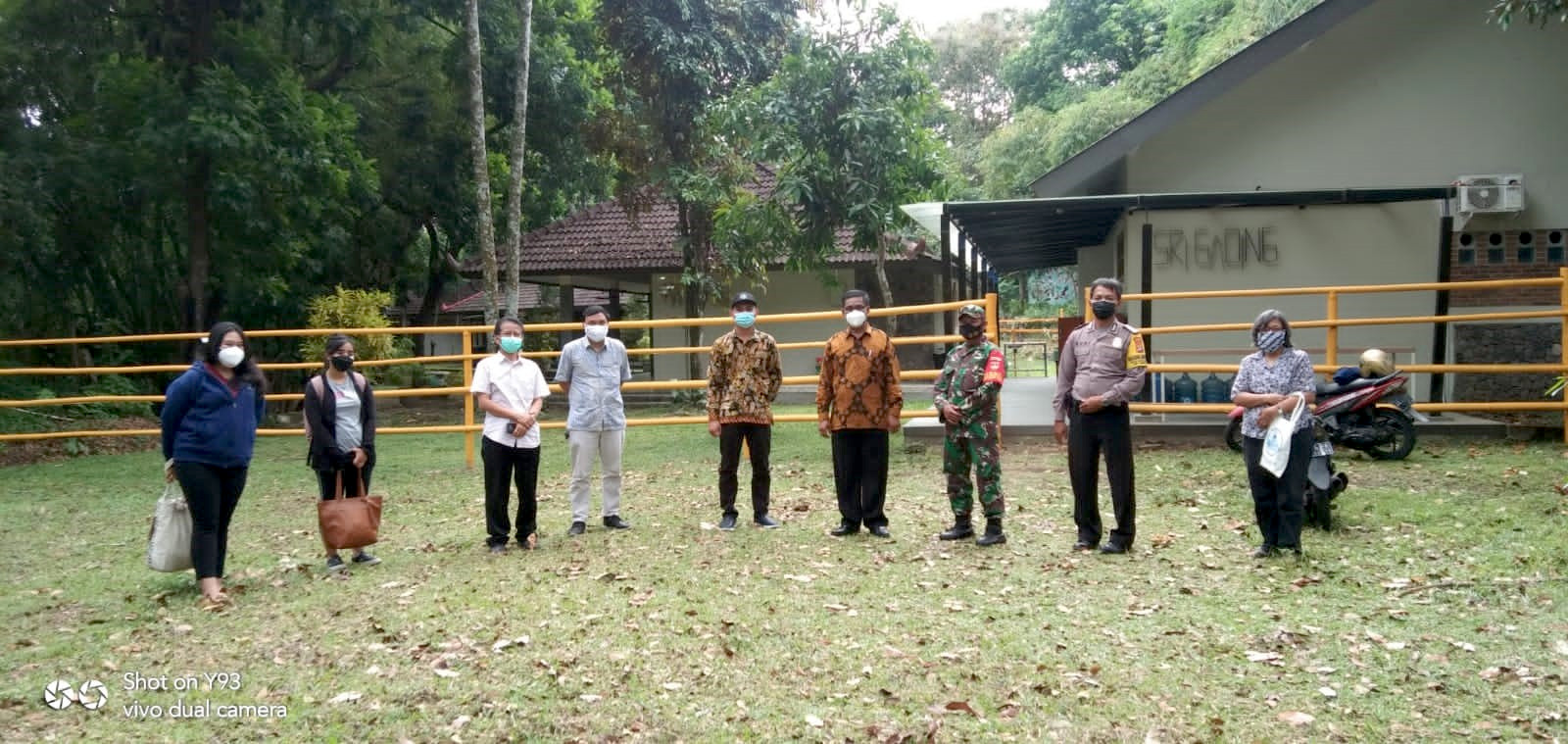
Whatsapp was instrumental in facilitating our services efficiently and with the least amount of physical contact. In fact, most of the process was done online. We set up three group chats: the shelter managers and medical team were in one group; the volunteers, medical team, and shelter coordinator comprised another group; and the patients, medical team, and shelter coordinator made up the third group. The medical team and most of the volunteers never had direct contact with the patients. Only three volunteers, two assigned at the registration desk and another who escorted the patients to Ngaglik Public Health Center, had physical contact with the patients.
Those who wished to stay in the shelter had to be Covid-19 positive, but asymptomatic and could take care of themselves without much assistance. They also had to fill out an electronic form as part of the screening process by the medical team. Those accepted received a message to come to the shelter the following day, where they were welcomed by the volunteers, and taught how to use the blood pressure monitor, pulse oximeter, and thermometer gun. The volunteers did not accompany them to their rooms to avoid the risk of infection.
Of the 63 patients who registered, 40 were accepted – 23 patients in the first batch and 17 in the second batch. Fr Murti, who was in charge of the shelter, referred to the guidebook for self-isolation provided by SONJO. The patients’ daily routine included sunbathing, room and garden cleaning, and praying. Every afternoon, the Catholics would pray together via Zoom led by a Jesuit scholastic from St Ignatius College, while a Muslim volunteer led the Muslims in prayer.
The Sego Mubeng Community of St Anthony Padua Parish in Kotabaru prepared ready-to-eat meals, while the Sisters of Saint Charles Borromeo in Syantikara provided healthy drinks every morning. Panti Rapih Hospital also provided two medical doctors and one senior nurse to serve as consultants.
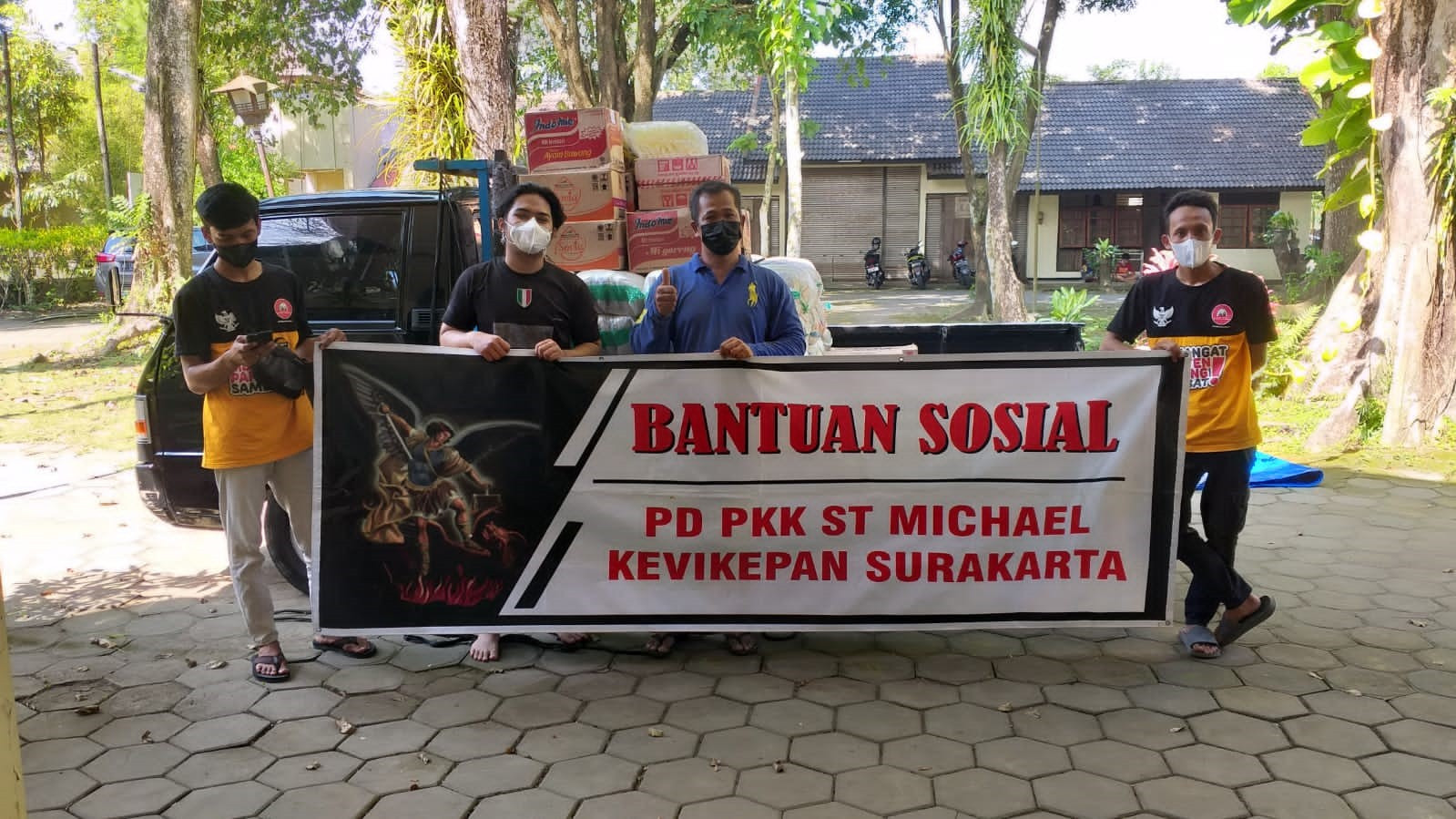
Twice daily, the patients checked their blood pressure, oxygen saturation level, and temperature using the devices available in their room. The results had to be written in the electronic form that was sent to the group chat every morning and evening. If there were any problems, the patients asked the secretariat for help through the chat. The medical team read the results of the patients’ daily monitoring. If there were data that needed to be clarified or treatments needed, the team would ask the shelter coordinator to contact the patient. They also conducted online consultations.
At the end of the quarantine period, the medical team would assess the patients to ensure that they had indeed recovered. A volunteer would then take them to the Ngaglik Public Health Center to get a health clearance. This was always a source of relief for all of us. Afterward, the patients cleaned up their rooms, said goodbye to everyone in the group chat, and filled out an electronic feedback form.
On 16 August, the last two patients in the shelter were declared healthy by Ngaglik Public Health Center and could return home. It was one day before the commemoration of Indonesia’s Independence Day. It was such a great blessing for all of us – staff and recovered patients – to be able to celebrate the 76th year of our independence in freedom.
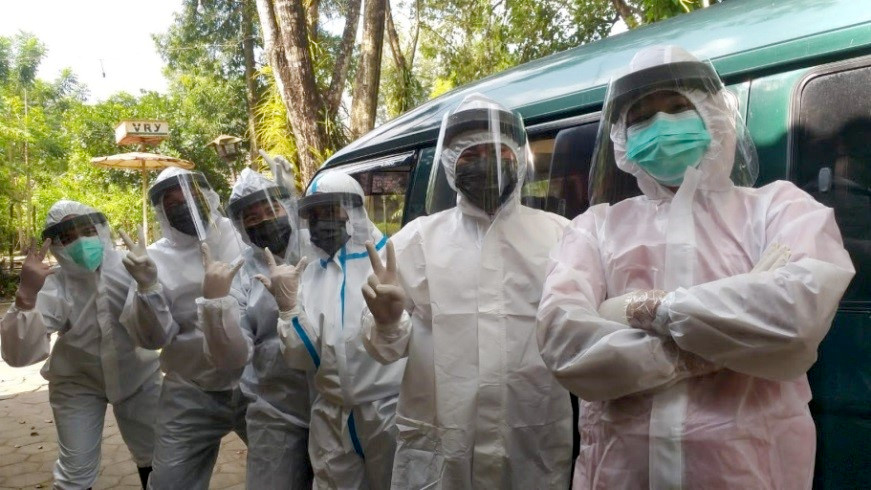
The experience of offering Kampoeng Media as a shelter concretised for us the faith and resurrection Pope Francis talks about in his exhortation, Evangelii Gaudium: “Where all seems to be dead, signs of the resurrection suddenly spring up. It is an irresistible force…. But it is also true that in the midst of darkness something new always springs to life and sooner or later produces fruit.” (EG 276)
We saw the spirit of solidarity and charity alive in our staff, patients, donors, and volunteers – many of them young people. We realised the importance of social media, not only in spreading the faith but also in helping live out that faith. The group chat became not only a source of information but of consolation as well. Patients and shelter staff exchanged greetings and encouragement, updates on new and discharged patients, parcel deliveries from families, and funny stickers to lighten up their days in self-isolation, which can be a struggle for many patients. The result was joy even in the midst of difficulties. And where there is joy, God is glorified.
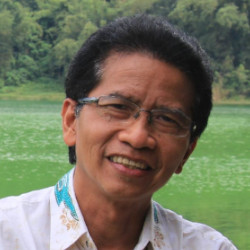 Fr Yoseph I Iswarahadi SJ is the Director of Studio Audio Visual-Sanata Dharma University. He is also a lecturer in Communication and Media at the Catholic Education Study Program and the Faculty of Theology of Sanata Dharma University.
Fr Yoseph I Iswarahadi SJ is the Director of Studio Audio Visual-Sanata Dharma University. He is also a lecturer in Communication and Media at the Catholic Education Study Program and the Faculty of Theology of Sanata Dharma University.

